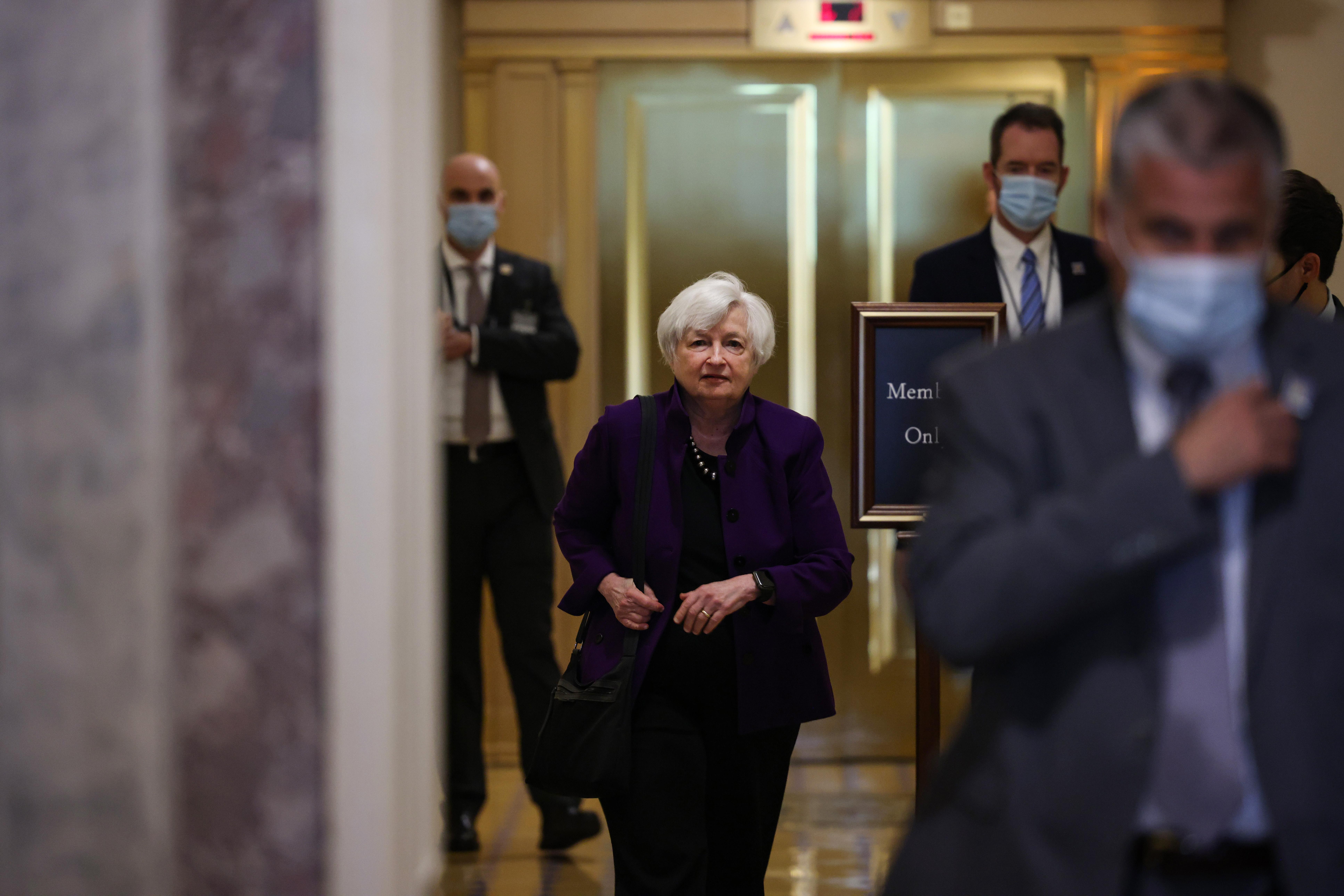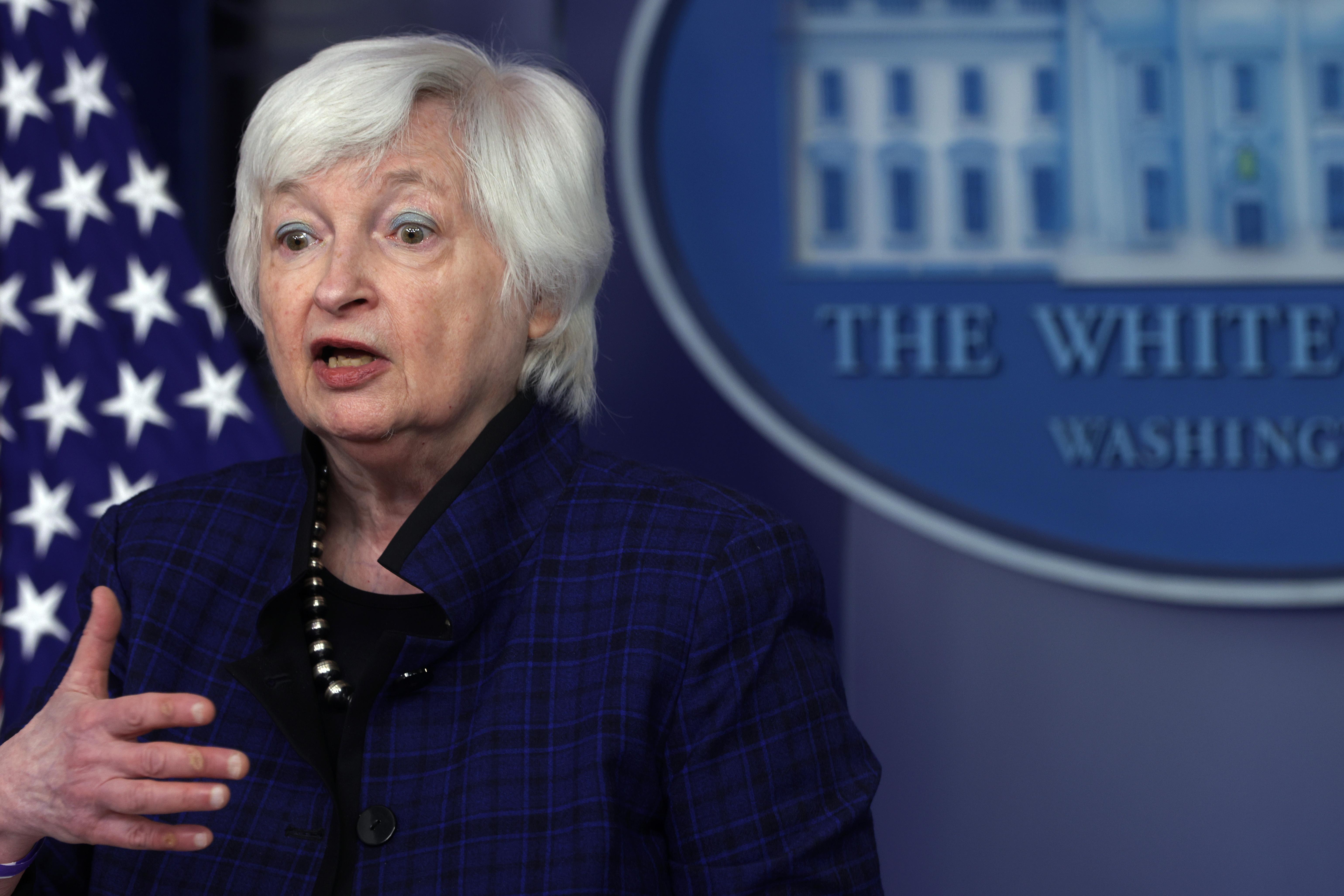Will the U.S. Increase the Debt Ceiling In Time and Avoid Defaulting?
With the threat of defaulting on national debt looming over us, will the U.S. increase the debt ceiling in time to avoid it?
Sept. 14 2021, Published 10:43 a.m. ET
The threat of the U.S. defaulting on the national debt is very real. While it hasn't happened yet, it's a possibility that would negatively impact every single American. The government is approaching a crucial deadline that requires Congress to raise the debt ceiling or else default.
Will the U.S. follow through for the American people and increase the debt ceiling as Treasury Secretary Janet Yellen has urged, or will the government default and cause all kinds of turmoil?
The debt ceiling faces an estimated mid-October deadline.
The U.S. has until mid-October to mid-November to make a decision about the debt ceiling. Currently, the U.S. debt sits at $28.4 trillion. There are only two options—raise the debt ceiling or default.
The government paused the debt ceiling for two years, but that move expired on Aug. 1. In the months since then, the government has used a range of methods to push back the deadline. A centrist think tank called Bipartisan Policy Center extended its deadline estimate following a sudden increase in federal revenues. All estimates aside, the end of the fiscal year is approaching for the federal government, and that's a pivotal time.
On one end, Democrats want to increase corporate and wealthy taxes and pass climate, infrastructure, and social safety net bills worth trillions each. On the other end, Republicans want to keep taxes low and decrease spending. At some point, the debt ceiling decision will force the parties to mutually agree—or else risk the economy's stability for all Americans.
How a debt ceiling ultimatum impacts Americans
Defaulting on national debt means imposing widespread economic trauma. First, a government shutdown would occur to force a decision. Then, government payments would be delayed, including federal employee paychecks and social security payouts. Ultimately, interest rates would balloon and the stock market would succumb to the wrath of U.S. credit downgrades.
Biden's corporate tax proposal looks attractive in a default-prone environment
While many Republicans won't budge on taxes, the situation could sway the vote for some line-walkers. Right now, Democrats are proposing $2.9 trillion in tax hikes for corporations and the wealthy over the next decade. This would come in the form of increased capital gains taxes, higher taxes for Americans earning more than $5 million, and increased fiscal responsibility for pharmaceutical companies, among other tax cocktail ingredients.
At face value, this would help pay for spending proposals like the infrastructure, climate change, and social safety net bills. However, it would also rake in funds at a time when the national debt is more of a looming threat than an abstract concept.
Will the U.S. actually increase the debt ceiling in time?
According to the U.S. Treasury, "Congress has acted 78 separate times to permanently raise, temporarily extend, or revise the definition of the debt limit—49 times under Republican presidents and 29 times under Democratic presidents."
It's highly possible that President Biden will increase the debt ceiling once more. He will likely need to compromise on spending and tax proposals in order to receive Republican approval.


